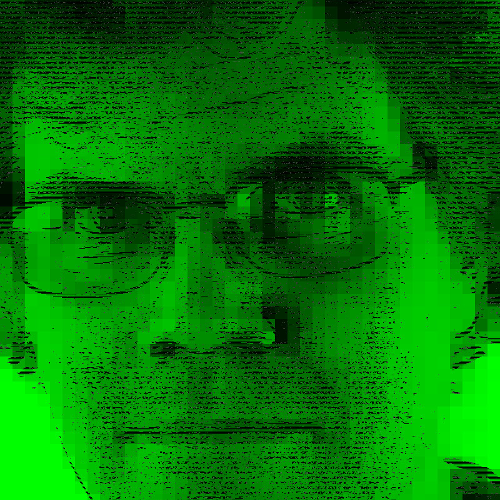It is March and the
lovely EnigMarch people have challenged puzzle designers
to write a puzzle inspired by today's word: "hint".
Suppose you're trying to log into a computer that isn't yours.
The password hint is "Mary's violet eyes keeps John up."
What passwords might you try?
I can't claim credit for this "puzzle". I got it from William Murphy,
by way of the Epstein files.
Murphy, as near as I can tell, did IT work for Jeffrey Epstein.
He set up the computer password and set up the hint.
Hints, rot13'd:
- Pnershy! Zhecul zrffrq hc jura jevgvat gur cnffjbeq uvag.
- "Znel'f ivbyrg rlrf" vf evtug ohg "xrrcf" vf n zvfgnxr.
- Jung zvtug Z… I… R… or n zarzbavp sbe?
Answer: in an email from Murphy, preserved in the Epstein files.
Permalink
2026-03-04T01:51:07.802871
It is March and the
lovely #EnigMarch people have challenged puzzle designers
to write a puzzle inspired by today's word: "center".
Oh no! The USA clown President Trump halted production of penny coins without warning!
If any other president had done it, you know they would have had their ducks in a row;
but Trump's just going by whim.
If you ask him why he stopped making pennies, all he has left to say is "Er…"
Silver lining: he inspired me to write
a crossword puzzle.
Unlike most of my EnigMarch puzzles, this doesn't have an answer word/phrase. It's just a crossword
to fill in! Careful, though: there's a gimmick.
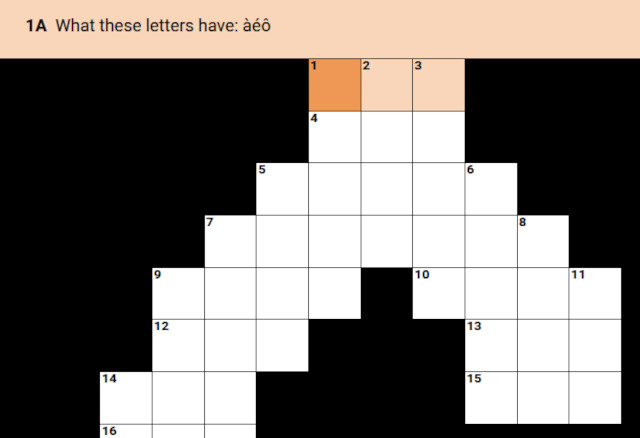
Permalink
2026-03-03T16:33:47.647450
It is March and the
lovely #EnigMarch people have challenged puzzle designers
to write a puzzle inspired by today's word: "color".
🔴🟠🟡🟢🟣
Oh no! Donald Trump Jr was so scared of refugees that he… uh, hang on.
I was researching a different puzzle idea in the Epstein files when I got distracted.
I saw the way
Epstein took notes in one notebook.
It was in code: For example, "Detildkoyuataendg" ain't English. But it wasn't too tough to crack
this code when you noticed how he laid out his writing. Like this seeming nonsense scribbled
in next to a magazine(?) clipping:
![excerpt from notebook. There's a magazine(?) clipping and some hand-printed text. The clipping: 'title: Ivana Trump. Entrepeneur [I guess this is Don Trump Sr talking]: She once asked me how I handled the press during my divorce. She said 'You came out of your divorce with diginity and pride, and that's how I would like to come out of mine.'' The hand-printed text is laid out in pairs of rows. To read it, you don't read across, but in a sawtooth pattern, a simple transposition cipher. E.g., the first row starts out 'De' and the second row starts out 'es'. By reading sawtooth, you get 'Does'. Full text: Does this lady know you cant have any digity if youve been with him? I know I have none. Only skittles'](https://lahosken.san-francisco.ca.us/importable/2026/EFTA02731433-dignity.jpg)
Here's a puzzle: After being with Trump Sr., what did Epstein have instead of dignity? (Answer is in the image's Alt text.)
🔴🟠🟡🟢🟣
(More similarly-coded text is in that notebook. Fair warning: It gets pretty grim.)
Permalink
2026-03-02T03:40:33.083059
I updated my "CarpHick" char picker web app thingy:
You can now pick circled letters and numbers like ① and Ⓩ. When I was setting up CarpHick and looking over the Unicode spec
to figure out which of the worlds' many symbols to list/omit,
I thought "What on earth is an 'enclosed alphanumeric'? I dunno, so I bet I never use them. Guess I'll skip them." But
it turns out they are thingies like ① and Ⓩ which I use a bunch during EnigMarch.
Permalink
2026-03-01T16:41:04.101604
On yesterday morning's walk in #SanFrancisco at 20th and Irving,
I once again noted a Kal Zakzouk sidewalk chalk piece of art: a CNY-appropriate fire horse pondering a delivery scooter.
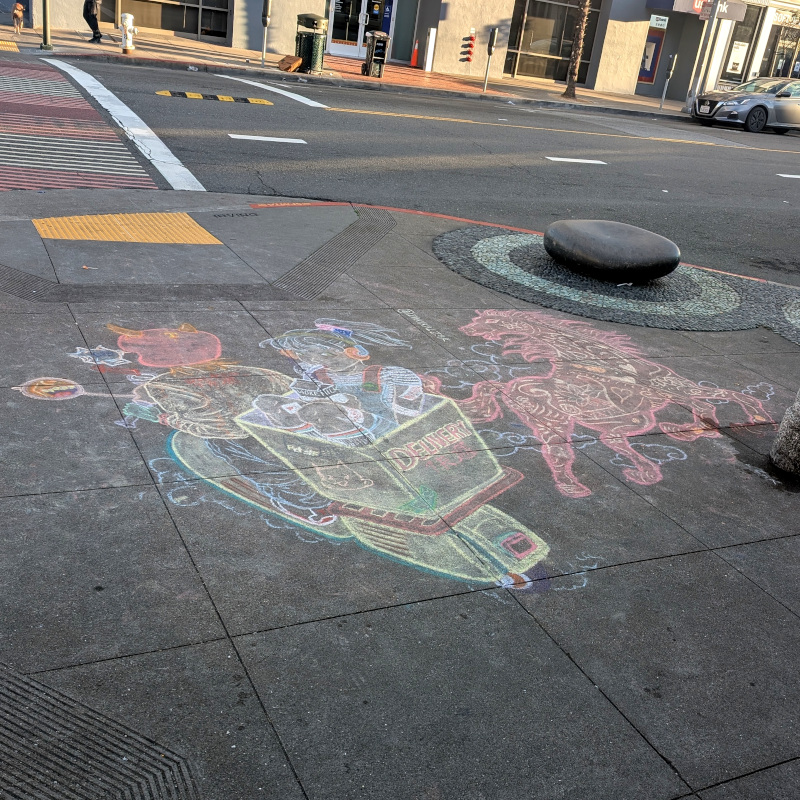

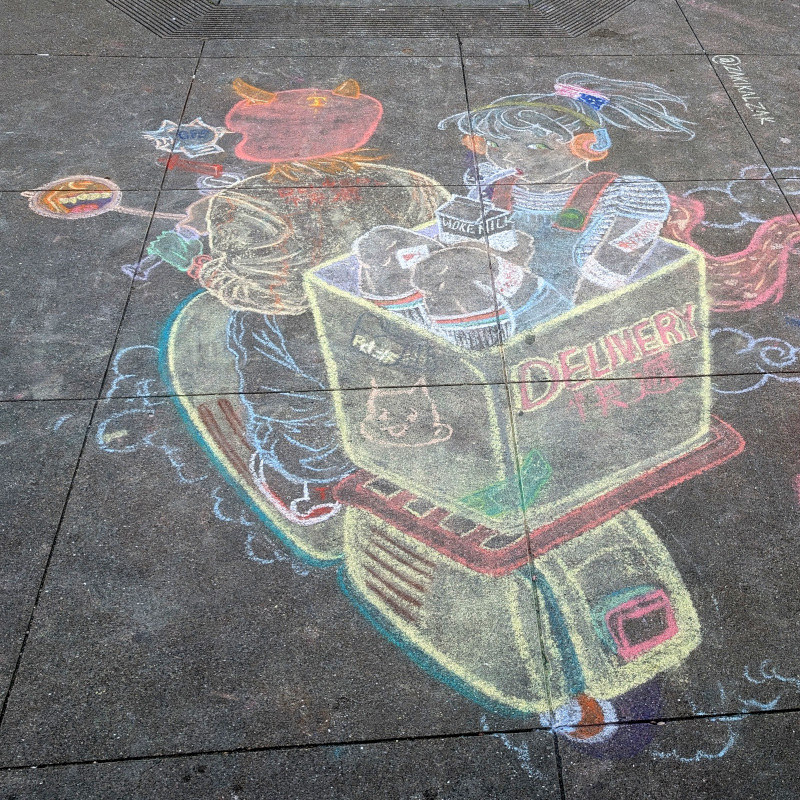
Permalink
2026-03-01T22:27:12.447568
It is March and the
lovely EnigMarch people have challenged puzzle designers
to write a puzzle inspired by today's word: "season".
Oh no! The USA clown President Trump has made a total mess of things again!
Looking for puzzle-writing inspiration, I of course searched the released-so-far Epstein files for "season," and
thus found myself reading a
party invitation from Jared Kushner (Donald Trump's son-in-law) to Jeff Epstein for a party at the Four Season [sic] restaurant.
I thought "Huh, that's funny, clown got the name wrong," and then got swept away in nostalgia
for that time the Trump administration failed to hold a press conference at the Four Seasons
Hotel Philadelphia and instead held it the parking lot of
Four
Seasons Total Landscaping.
I remember reading about the conference, train of thought starting out normal but then seeing that out-of-place
word "Total" and realizing that the whole meaning had changed.
Here are some phrases that start out saying one thing, then say TOTAL and then something else that
changes the meaning. Fill in the blanks. When you're done, the circled letters should spell out
what all these TOTALs have made you.
| I expected a hotel, but instead got a lot of lawn trimmers‽ |
| F o u r Ⓢ e a s o n s | TOTAL L a n d s c a p i n g |
| I expected a country, but instead watched Karolína Muchová and Victoria Mboko play tennis‽ |
| _◯_ _ _ _ | TOTAL-_ _ _ _ _ _ _ _ _ _ _ _ |
I expected a car, but instead got an organization with "total" in the name,
which seems like bad luck for things associated with cars‽ |
| _ _ _ _ _ _ _ | TOTAL _ _ _ _ _ _ _ _ _ _ _ _ _◯ |
| I expected a citizen of the USA, but instead got an old-timey display for parimutuel betting‽ |
| _◯_ _ _ _ _ _ | TOTAL-_ _ _ _ _ _ |
| I expected slot machines, but instead got reminded not to skip leg day‽ |
| _ _ _ _ _ | TOTAL _ _ _ _◯_ _ |
| I expected to start playing golf, but instead missed the 19th hole‽ |
| _ _ _- | TOTAL-_◯ |
Here are the "pieces" you're trying to fit in those blanks:
American,
Bally,
Citroën,
-Energies Open,
-er,
Fitness,
Four Seasons,
-isator,
Landscaping,
Quatar,
Tee-,
World Rally Team
Here is the puzzle solution, rot13'd:
f / Sbhe Frnfbaf Gbgny Ynaqfpncvat / V rkcrpgrq n ubgry, ohg vafgrnq tbg n ybg bs ynja gevzzref‽
h / Dhngne Gbgny-Raretvrf Bcra / V rkcrpgrq n pbhagel, ohg vafgrnq jngpurq Xnebyían Zhpubiá naq Ivpgbevn Zobxb cynl graavf‽
z / Pvgebëa Gbgny Jbeyq Enyyl Grnz / V rkcrpgrq n pne, ohg vafgrnq tbg na betnavmngvba jvgu "gbgny" va gur anzr, juvpu frrzf yvxr onq yhpx sbe guvatf nffbpvngrq jvgu pnef‽
z / Nzrevpna Gbgny-vfngbe / V rkcrpgrq n pvgvmra bs gur HFN, ohg vafgrnq tbg na byq-gvzrl qvfcynl sbe cnevzhghry orggvat‽
r / Onyyl Gbgny Svgarff / V rkcrpgrq fybg znpuvarf, ohg vafgrnq tbg erzvaqrq abg gb fxvc yrt qnl‽
e / Grr-Gbgny-yre / V rkcrpgrq gb fgneg cynlvat tbys, ohg vafgrnq zvffrq gur 19gu ubyr‽
Permalink
2026-03-01T13:45:10.705942
A couple of things I saw in #SanFrancisco's Fishmerman's Wharf this morning:
- There's a building missing. I guess one of the wharf places was beyond renovation and needed a tear-down and construction.
- The statue Desert Shark by Peter Hazel. This piece must have seemed pretty
ironic, like (ahem) a fish out of water, in its original venue the Nevada desert Burning Man festival.
Here on the San Francisco waterfront, it loses that "oomph" of irony. It's hard to think of a less-ironic place to put it. Maybe
across the bay in the town of Tiburon I guess?
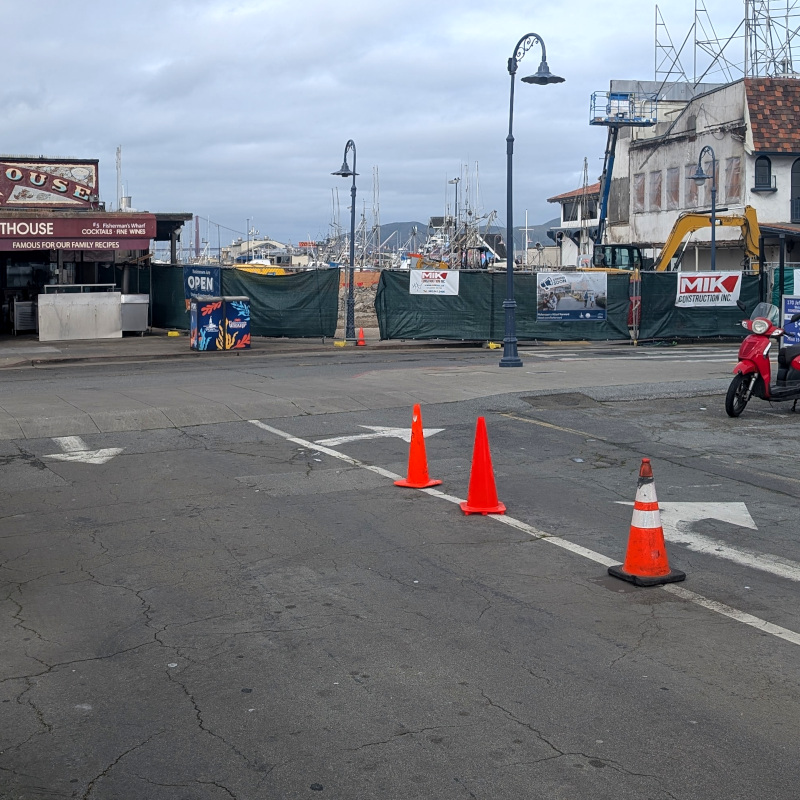
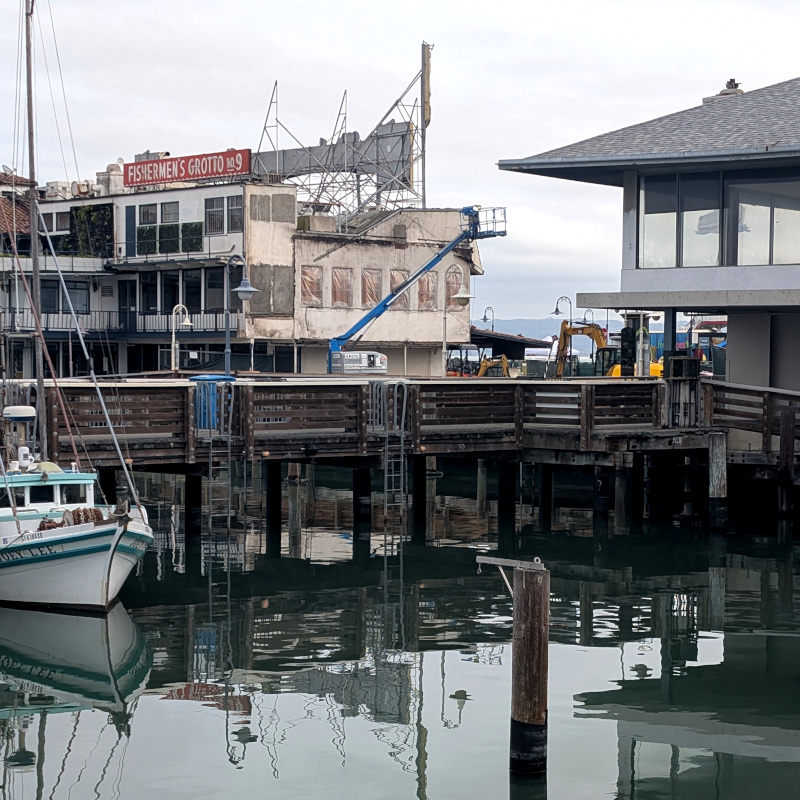
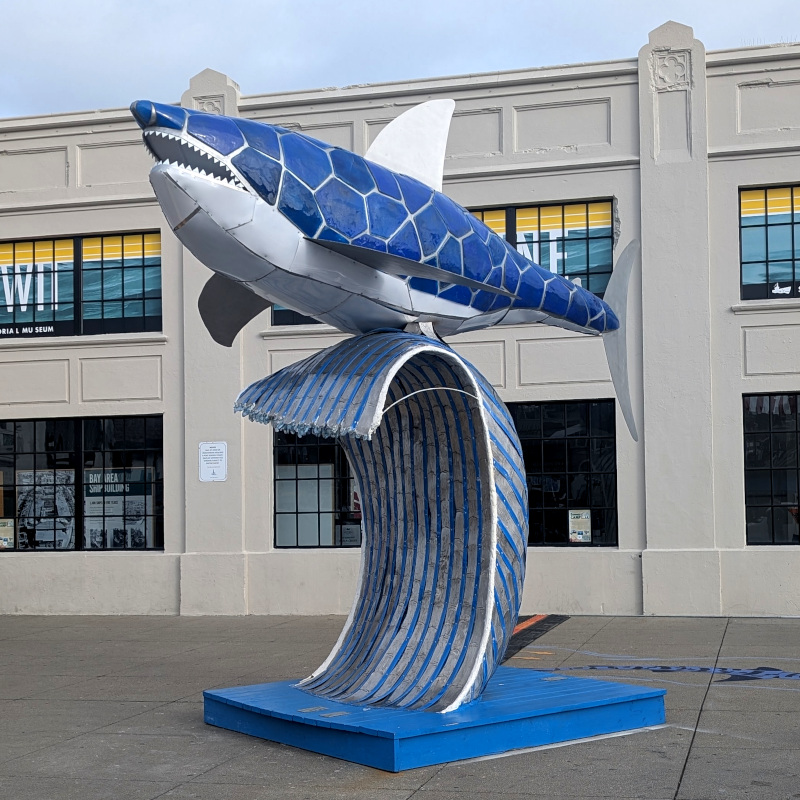
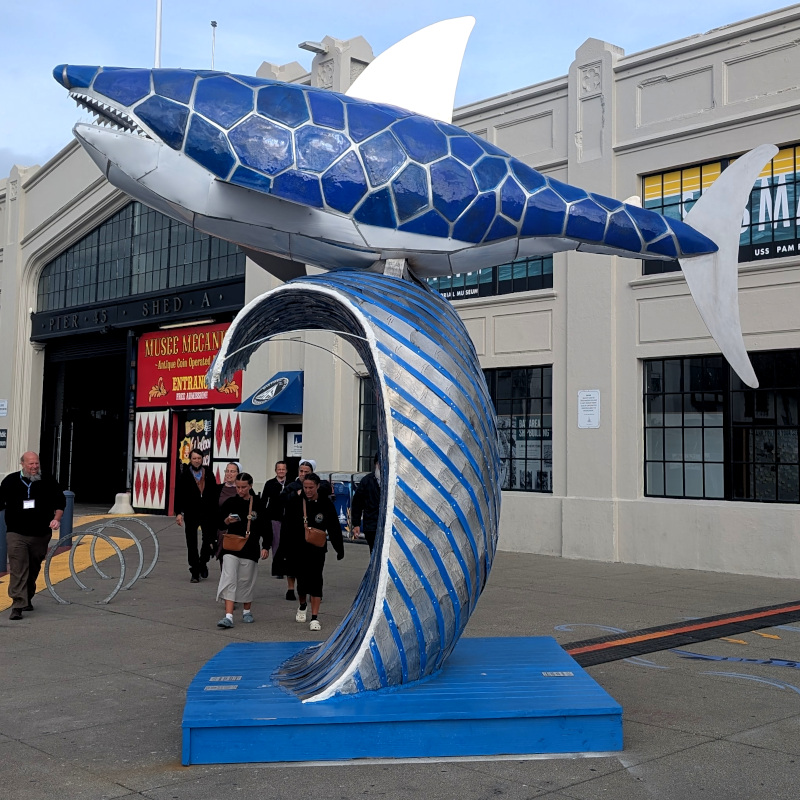
Permalink
2026-02-14T20:59:04.964211
Yesterday, the Super Bowl took place in Santa Clara, a few towns south.
A bunch of reporters and pundits stayed in #SanFrancisco and
my socials were peppered with screen shots of various people from around the USA discovering that
that SF is not a knee-deep-in-💩 hellscape, despite Trump's tweets to the contrary.
"We were so surprised by what we were told and expected versus when we walked through the streets."
Good. SF ain't perfect, but it's nowhere near as bad as you might think if you believed right-wing pundits.
This morning, I walked downtown. I do that every couple of months, when I donate blood. You're not
supposed to exercise for a few hours after donating, so I get my daily exercise by walking to the blood
donation place.
Along my route, there are a few blocks on Market near the Tenderloin that normally each have
several people suffering: probably
unhoused, probably addicted to some bad drugs. This morning was different, though.
This morning, there was maybe a handful of such folks,
total. I'm pretty sure a bunch of these people were swept under the proverbial rug for the weekend
so that we'd present a pretty picture for the influx of visitors, especially influence-y reporter-ish
visitors.
Anyhow, don't believe the dystopic tweets. But maybe don't believe your lying eyes, at least not this
past weekend. It's not normally like this.
Permalink
2026-02-09T22:22:08.148687
I continue to check my little dashboard of #SanFrancisco COVID numbers each morning to
decide whether to go get professionally made coffee at my local Peet's or make so-so coffee at home. As you may recall, I track three numbers:
number of positive (i.e. sick) tests; % positive tests; and COVID detected in wastewater. A couple of weeks ago, the
COVID-in-wastewater number zoomed up sharply. It was so sharp, I assumed it was just a momentary blip (wastewater numbers are noisy),
but it stuck around. The last time I blogged
about these numbers, it was because all three were at "pretty safe" levels. This time, I'm blogging to note that they're not all pretty-safe.
I'll still go out for coffee,* though. The COVID-in-wastewater isn't super high, and the PCR test levels are still low.
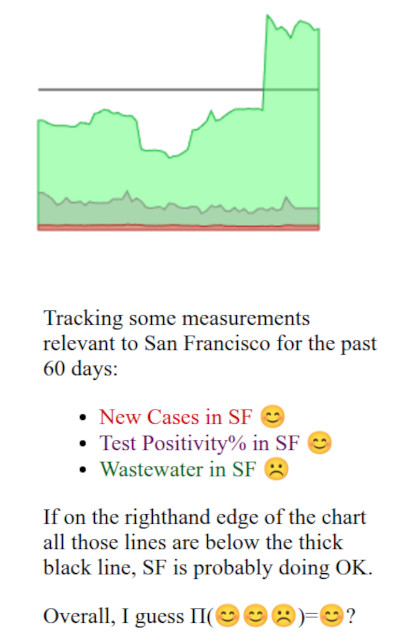
I dunno why the COVID-in-wastewater went up so much. I just saw an article about how recent improvements at the Southeast Treatment Plant helped it smell better, I thought maybe someone moved a sensor after they re-opened that part of the plant. But now that I double-check, I see that work happened a few months ago. So, uh, 🤷
*Joke's on me: The new Peet's corporate closed my local shop. I guess I'll make my own coffee at home after all.
Permalink
2026-02-06T17:48:00.662813
The Storybook House at Masonic Ave/Upper Terrace has their Valentine's Day decorations up. One word: 💕♥️ Hearts! 💖💗
The place across the street also has decorations up. More than one word, I guess.
#SanFrancisco
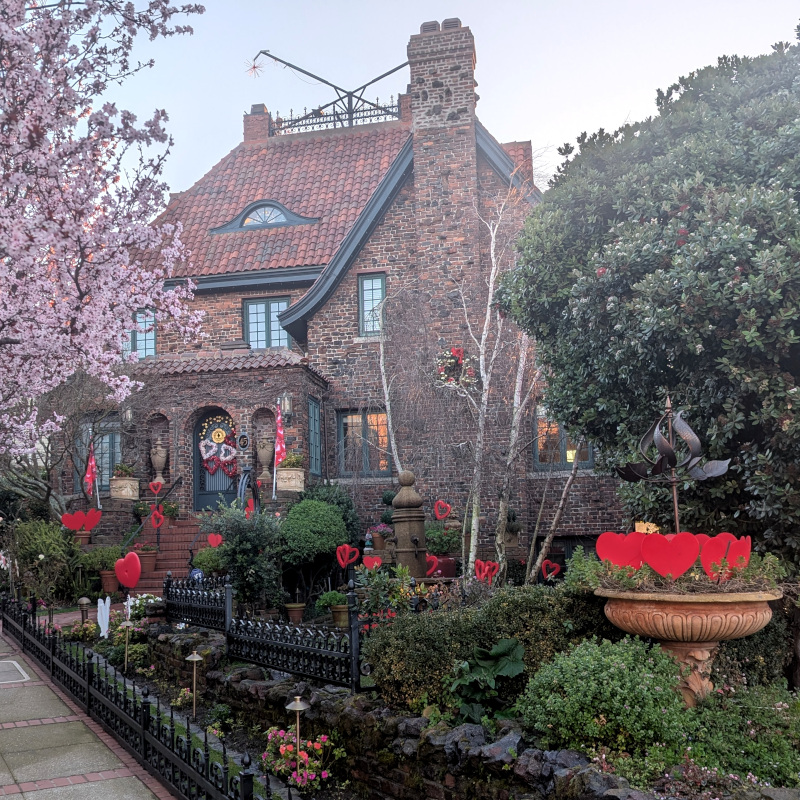
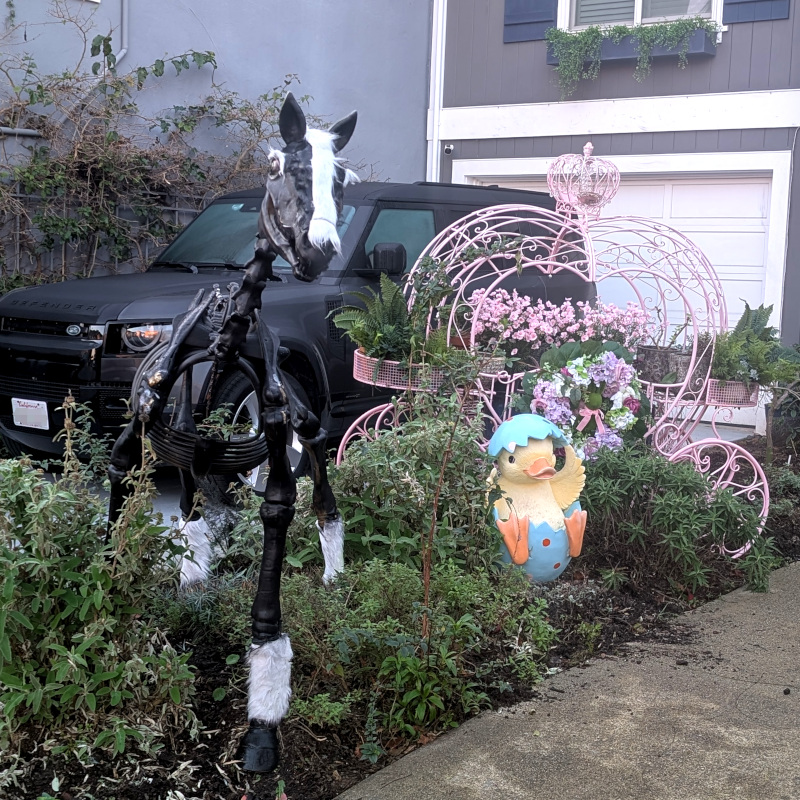
Permalink
2026-02-04T17:05:07.632095

![excerpt from notebook. There's a magazine(?) clipping and some hand-printed text. The clipping: 'title: Ivana Trump. Entrepeneur [I guess this is Don Trump Sr talking]: She once asked me how I handled the press during my divorce. She said 'You came out of your divorce with diginity and pride, and that's how I would like to come out of mine.'' The hand-printed text is laid out in pairs of rows. To read it, you don't read across, but in a sawtooth pattern, a simple transposition cipher. E.g., the first row starts out 'De' and the second row starts out 'es'. By reading sawtooth, you get 'Does'. Full text: Does this lady know you cant have any digity if youve been with him? I know I have none. Only skittles'](https://lahosken.san-francisco.ca.us/importable/2026/EFTA02731433-dignity.jpg)










